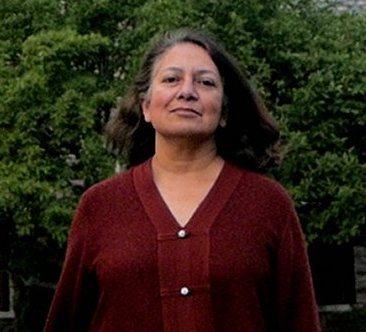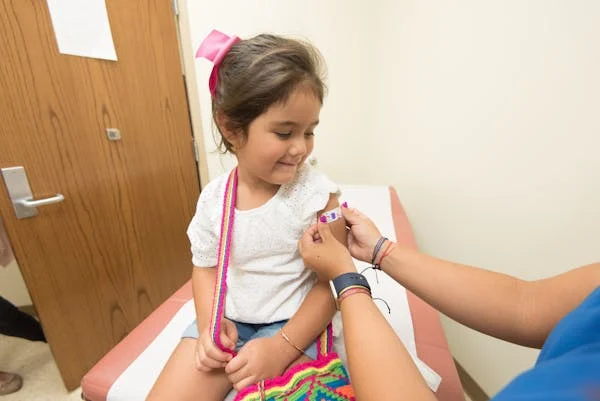Bonus Episode: https://www.patreon.com/posts/bonus-episode-ii-100102849
Or via apple podcasts: https://podcasts.apple.com/us/podcast/ep4-lockdowns-thinking-in-one-dimension-with-guest/id1728086643?i=1000648655188
In early 2020, Sunetra Gupta was quietly working on a universal influenza vaccine as Professor of Theoretical Epidemiology at Oxford University, while finishing her sixth novel. By then, a new coronavirus had been discovered in Wuhan, China. In response, she and her group produced a paper suggesting, among other scenarios, as much as 50% of the U.K. population had already been infected.
This was in stark contrast to the assessment of Professor Neil Ferguson at Imperial College London, whose modelling assumed Covid-19 had just arrived in the West and that we had no cross-immunity from other coronaviruses against it, meaning it would kill almost one in a hundred of those who contracted it. For reasons still inadequately explored, the U.K., Irish and most Western governments – along with many in the Global South – followed Ferguson’s (and others’) doomsday prediction and chose untested lockdowns in anticipation of a vaccine – a containment strategy to ‘flatten the curve’, as opposed to a (Chinese-style) elimination strategy.
Sunetra Gupta has been vindicated in her assessment that Covid 19 had been circulating far longer than initially understood, and also that it had a much lower fatality rate than Ferguson and others assumed from limited data. Moreover, it was obvious that this social experiment would cause serious harms, while its inability to contain the virus was unknown.
Sunetra Gupta did not take lockdown lying down. She and a number of academic colleagues authored the Great Barrington Declaration in October 2020, advocating for an end to lockdowns, and promoting the targeted protection of the elderly – who were by far the most susceptible to death from the virus.
What followed was not, as she hoped, a civilised discussion weighing the costs and benefits of each strategy, but abuse and even an attempt to have her silenced.
Sunetra Gupta argues that what we experienced with lockdowns represented a distortion of the precautionary principle, arguing:
I think that people were incorrectly assuming that they were applying the precautionary principle to all of this. So they were thinking, okay, well, you know, the worst case scenario is what we should be going by. And that’s because they were thinking in one dimension, which is we’ve got to do whatever it takes to stop this pandemic from unfolding, because it is compatible with the idea that 1% of the population will die if it just unfurls. What they were missing was the fact that these very measures that they were seeking to employ to stop the spread were ones that came at a very huge cost – and that was known at the time – what we didn’t know is whether those measures would stop the spread. And even if they did, what effect that would actually have eventually on the final death toll. But what we absolutely knew for certain – because it was happening in front of our eyes – is that these lockdowns would cause people to die. People were already dying from not being able to sell toys in the pavement in Delhi and being told to go back home to their villages, so the costs of lockdown were known, the benefits of lockdown were completely unknown. And under those circumstances, what you should be doing if you’re adopting the precautionary principle is to not go with lockdowns, but think of other solutions.

Image: Andrea Piacquadio
Universal Influenza Vaccine
Some years ago, Sunetra Gupta and colleagues theorized that parts of the influenza virus ‘targeted by the immune system are, in fact, limited in variability and acts as a constraint on its evolution.’
The current, relatively ineffective, vaccines against it, have to be updated every year to catch up with changes in that virus. She reveals to Cassandra Voices that ‘we now have the ingredients to make this [universal]vaccine.’ This will mainly address endemic influenza which kills almost half a million people, including a high proportion of infant babies, every year.
Interestingly, Sunetra Gupta argues here that the possibility of an influenza pandemic was ‘actually eliminated a long time.’ She bases this assessment on how until 1918: ‘we experienced influenza only in pandemic form, just because of the demographic characteristics of the time. But since 1918, we’ve had influenza as a seasonal, regular endemic occurrence.’
Today, she says, we are ‘all regularly exposed to influenza,’ giving us protection against severe disease.’ She further argues:
What happened in 1918 was that, in my opinion, there had been no flu around for thirty years. So when the virus arrived, people under the age of thirty were extremely vulnerable. And that’s why you saw such high death rates in young people. People over the age of thirty were more protected.
She says it’s true, to an extent, that international travel predisposes us to pandemics, but, paradoxically, ‘we are regularly exposed to different viruses, which gives us a wall of immunity against these emerging threats.’ She assumes that without regular exposure to the other seasonal coronaviruses ‘we would have been more susceptible’ to COVID-19.
Based on her evolutionary theory, she had predicted the Swine Flu pandemic (that generated unwarranted hysteria) of 2009 two years before it hit. She says she ‘wasn’t the least bit worried in 2009 because, first of all, I thought even if it weren’t basically identical to the 1918 flu, that most of us would have a considerable degree of immunity against severe disease.’
Contrary to Bill Gates, who claims the world must create ‘a fire department for pandemics’ to avoid catastrophic outbreaks, Sunetra Gupta says ‘we don’t need to panic to the degree that we do about new pandemics; what we need to do is to be clear headed and rational and try and think about ways of protecting those who might die or might be severely ill and hospitalised from these pandemics or these events.’

The Role of the Epidemiologist
The medical historian Mark Honigsbaum wrote in Pandemic Century – One Hundred Years of Panic, Hysteria and Hubris (2019) that ‘by alerting us to new sources of infection and framing particular behaviours as risky, it is medical science, and the science of epidemiology in particular, that is often the source of irrational and often prejudicial judgments’. Then in 2020, the Nobel Laureate Michael Levitt claimed that epidemiologists see their function ‘not as getting things correct, but as preventing an epidemic. So therefore, if they say it is one hundred times worse than it’s going to be, then it’s okay.’
Sunetra Gupta argues:
the role of epidemiology is to provide a conceptual framework within which you can understand what is happening and, rather than preventing pandemics or epidemics, which I’ve always been skeptical about, what you want to prevent is the death or the consequences of these events.
She reckons: ‘it’s a hubris, really, as we saw to think that you can stop the spread of a virus like SARS-CoV-2.’ However, ‘where you can intervene is to try and prevent the consequences of that spread, in that you can protect the vulnerable, or at least try to. But the idea that you could stop the spread was, I think, extremely misguided.’
She calls for greater resilience in the health system, pointing to the nefarious influence of neoliberal capitalism on public health.
If you’re trying to maximize what they call efficiency, you end up with these big hospitals instead of sort of more local, smaller units. And that creates the conditions for vulnerable people to be exposed more easily to the virus.

Professor Neil Ferguson.
SIR Model
Unlike Neil Ferguson, Sunetra Gupta’s team made no assumptions about the infection fatality rate in March 2020. She now says:
The purpose of that paper was to show that you can take a simple model, an epidemic model, which applies to coronavirus or any virus that gives you some level of immunity for a certain period of time, at least in the case of coronavirus. Of course, that would be short. Measles would be long. But any such model, which is called an SIR model – simply because people go from being susceptible to being infected and then recovering – you can fit a model like that to the available data under a very wide range of infection fatality rates.
She says Ferguson and his colleagues fitted the available data based an IFR of almost 1% because: ‘They were using data from the Diamond Princess cruise ship and a few other bits of data from Wuhan.’ In such a model as this the two variables, she says, ‘are the infection fatality rate and when the epidemic occurred … So what we showed is what we were seeing could easily be the result of an epidemic that had already occurred [that]had a very small infection fatality rate. Or as Neil proposed, there was an epidemic that was just taking off and had a high infection fatality rate.’
Later she was asked a guess about what the infection fatality rate might be. What she said, she stands by, that it was definitely less than 1 in 1000 and probably close to 1 in 10,000. She adds, in hindsight, however:
What I probably shouldn’t have done is given any answer at all, because the infection fatality rate is not really a number that you can think of in terms of the average across the population. So there will be parts of the world where, because there is [a high proportion of] elderly or people with comorbidities… [there is greater] vulnerability to death … So it is actually somewhat meaningless to think of the IFR as an average number, but it’s certainly not 1%.
‘What I was trying to do with that paper’ she says ‘is just to say, you can’t have that level of certainty in this situation.’ She agrees that ‘at the time you wouldn’t be able to discriminate between lockdown and the build-up of immunity and the contributions of seasonality. But now, because we have more data, you can and so it’s much more likely that we had built up what’s known as herd immunity in certain pockets or substantially it had accrued in certain areas.’
She adds:
We couldn’t tell then because we hadn’t done the experiment of lifting lockdown and seeing what would happen. But we did do that experiment a year later. And at that point you could discriminate between those two hypotheses. And I think what now I will say is that you can explain what happened almost anywhere in the world, using a simple model in which you accumulate immunity, but you also lose it quickly, which is known for all coronaviruses combined with the effects of seasonality. And that simple model … will explain qualitatively all patterns that we see.
@frankarmstrong2 reviews Toby Green and Thomas Fazi's Covid Consensus, which considers the effect of the cleansing of death from life in the West over many decadeshttps://t.co/Nn4lSCGqW4@toby00green @battleforeurope @casertron3000 @SunetraGupta @KevinBardosh @MartinKulldorff
— CassandraVoices (@VoicesCassandra) May 24, 2023
Gold Standard
On March 17th, 2020, Mark Landler and Stephen Castle wrote in The New York Times. ‘It wasn’t so much the numbers themselves, frightening though they were as who reported them: Imperial College London.’ Due to the professor’s W.H.O. ties, the authors noted ‘Imperial was treated as a sort of gold standard, its mathematical models feeding directly into government policies.’
Not long afterwards on March 24th, a report appeared in the Financial Times, quoting Sunetra Gupta to the effect that perhaps as much as half the UK population had already contracted Covid-19. However, the author of that article added that her group’s modelling was ‘controversial; and ‘its assumptions were have been contested by other scientists.’
Despite their differences, Sunetra Gupta speaks of a respectful relationship with Ferguson, with whom she had ‘friendly chats’ during the period. There was ‘no disagreement’ about ‘the basic ideas and assumptions.’ It’s just that he said ‘he thought that their worst case scenario was more likely than what I was saying, which is that we didn’t know, and perhaps veering more towards [that there had already been]substantial waves in areas like London … But we both acknowledged there were a spectrum of possibilities. And until we had the full data, we wouldn’t know where we were.’
She acknowledges, nonetheless, that ‘it’s hard not to have emotion about these things. But you know, at the end of the day, you’ve got to think about whether an intervention is achieving its purpose and whether the collateral damage is too great or not.’
Desmond Traynor reveals how he grew to love the sequestered state, to the extent that he still has not fully readjusted to things being ‘back to normal’.https://t.co/IIpuy7kj3p@Des_The_Dog @JaneSuit @mrkocnnll @paddycosgrave @fallon_donal @stingingfly #likinglockdown
— CassandraVoices (@VoicesCassandra) September 4, 2023
‘Oh, What a Lovely lockdown!’
Interestingly, Sunetra Gupta says she had ‘a great time’ during lockdowns as she lives in ‘a nice house with a big garden, and my daughters, who were in their early twenties, came back home for six months.’ She now wonders whether ‘at some point someone should write a play called Oh, What a Lovely lockdown!’
She says that’s the point: ‘the lockdowns … were put in place by those of us who are privileged; [what]Martin Kulldorff called them the laptop classes … while throwing the poor and the young under the bus.’
Regarding an extraordinary article in The Guardian by George Monbiot calling for ‘a time delimited outright ban’ on lies that endanger people’s lives, referring to people such as Allison Pearson, Peter Hitchens and Sunetra Gupta ‘who have made such public headway with their misleading claims about the pandemic,’ she says she was ‘absolutely shocked that someone like Monbiot would claim to know more [than me]about how the pathogen spreads, about epidemic behavior and control measures.’
She wonders, ‘why would someone with … no qualifications to speak of these things accuse me of spreading lies and misinformation … Why would he do that? I mean, it’s shocking.’
She says she tried:
to ask common friends to tell him. You know what? Pick up the phone to me. I’ll explain to you. I mean, that’s what he should have done. He should have said, oh, why is she saying this? Maybe I should just pick up the phone to ask for an interview and get her opinion. And then … he’s free to disagree with it. Although from a position of someone who is not precisely qualified to make those judgments. So I find that kind of behavior absolutely shocking.
Frank Armstrong reaches peak George Monbiot recalling a long record of flip-flopping and dubious ethics that reached a high water mark in response to COVID-19https://t.co/rhSMOCDOEW@broadsheet_ie @BowesChay @danieleidiniph1 @BenPantrey @LiamDeegan3 @j_reilly33 @indepdubnrth
— CassandraVoices (@VoicesCassandra) February 16, 2022
‘They Should Apologise’
Sunetra Gupta says she has repeatedly called for debates, for example, with Neil [Ferguson] with whom she has only ‘ever had a respectful engagement.’ She expresses surprise ‘that places like the Royal Society didn’t put on more debates and instead ‘just toed the line on this and just went with the consensus.’
She says:
I have not been approached with an apology from any of [her critics at the time]. An apology on account of how they behaved, but nor, indeed an apology on having got a lot of things wrong … So they criticised me for wrong reasons, and they should now come and say to me, we are sorry. We now see that lockdowns are indeed very harmful and that school closures didn’t prevent transmission, or that vaccines don’t block infection. They should apologize to me, but they haven’t.
She also has some harsh criticism for the way in which academia now operates:
I think the circumstances now under which academia is expected to operate are ones that are conducive to people … forming these sorts of groups, consensus groups, because that’s how they fund their research … by reviewing each other’s grants and just generally agreeing with each other. And of course … some of these funds are coming through some form of philanthro-capitalism. Those are all features of the system which lend themselves to this kind of aggravation of an idea of a risk. And … there’s also the … huge temptation of putting yourself in the middle of it being the saviour … “I had to get a burner phone because I’m so important.” And, you know, “I was the one who delivered the world of this scourge.” Those are the sort of rather more simple … reasons why we saw what we saw, rather than some huge conspiracy.
Reflecting on the period where she earned such publicity she says:
I’d always hoped [it would be]through my writing, through my novels, not necessarily through science. So I know it’s not something I particularly find to be that gratifying because this is just sort of my job and … it’s caused nothing but distress to me and to my family; for my daughters, it’s been a difficult period to have to deal with this fame, notoriety, that I achieved.
However, she doesn’t buy into the idea that the role of a scientist is simply to deliver the science:
because I think that one can always hide behind one’s profession. I mean, the best example … I often talk about [is from] the film Mephisto [1981, directed by István Szabó], where the central character, the actor … has kind of accepted the patronage of the Nazis at one point [and] when he’s accused of that, just says, “please leave me alone. I’m just an actor,” … nobody is just an actor or just a scientist. It’s not good enough to say, “I’m just a scientist. I just do mathematical modelling and you know, whether lockdowns work or don’t work or harm other people, it’s none of my business.” That’s not acceptable to me.

Childhood Covid-19 Vaccination
Regarding the vaccination of children against Covid-19 she says:
from the outset that there should never have been given to people who were effectively at zero risk of dying from Covid, particularly because it was never likely to prevent transmission for any more than a few weeks … so there was no logic. Again, if we talk about logic rather than anything else, there is no logic to vaccinating people who are not at risk if the vaccine does not prevent transmission.
She links this policy failure to recent measles outbreaks in the U.K., and Ireland:
we warned against this early on by saying one of the reasons not to vaccinate young children, even if it is completely safe, is because it doesn’t prevent infection. So it will create vaccine hesitancy against vaccines that actually people do need … we have limited resources, so it has an opportunity cost. And what we’re seeing in this country and across the world is … the diversion of funds that are meant to tackle these serious endemic diseases … And it’s very, very sad because it’s causing deaths and particularly in places, not so much the UK and Ireland, but … in sub-Saharan Africa or India, I mean, the infection control programmes and vaccination programmes have collapsed in many places, and this is going to lead to many more deaths than Covid, particularly in children, not to mention starvation and other issues.
She does not, however, believe that the excess deaths we have witnessed in recent times should be attributed to Covid-19 vaccines, pointing to the example of Sweden ‘which doesn’t have many excess deaths, but did vaccinate its population.’




